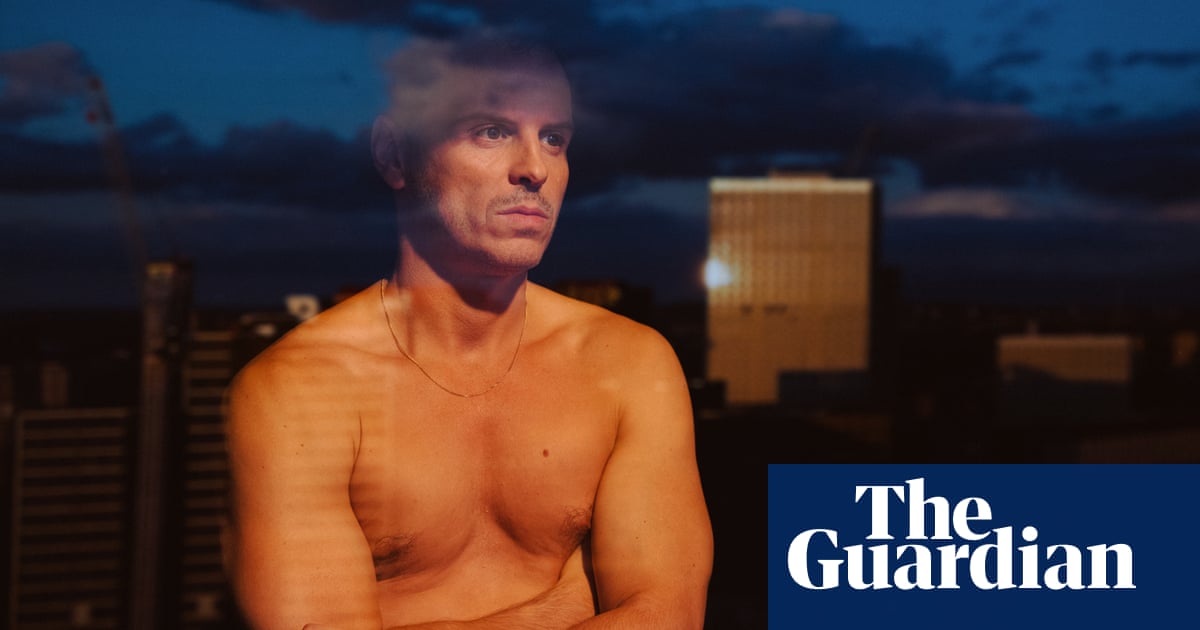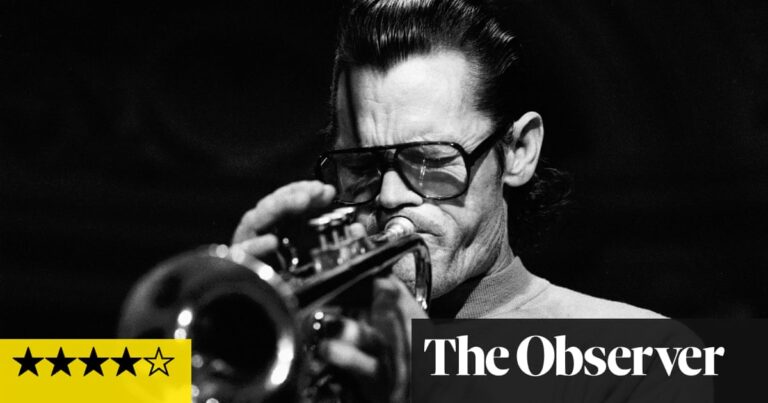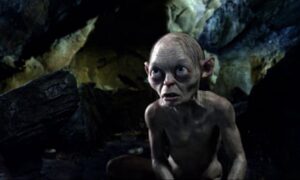
Underneath the radical swoon of Andrew Haigh’s ground-shifting gay drama Weekend was a swell of sadness. Clearer in the film’s more universal right-people-wrong-time romance but also in the more specific, and knottier, queerness. It was a rare, giddy uplift to see young gay men fall headfirst for each other with such believable and unfettered intimacy but their affection existed in a world full of caveats – where to kiss, how to act, who to be – and it was only in privacy that they could really be themselves. “When I’m at home I’m absolutely fine,” Tom Cullen’s Russell says. “I’m happy being gay … It’s when I go outside …”
Twelve years later in All of Us Strangers, Haigh’s first film about gay characters since, what lies outside has dramatically changed. Same-sex marriage has been legalised. Gay culture at large has been more widely embraced, from Heartstopper to Queer Eye to Drag Race. It has, allegedly, got better. But for Andrew Scott’s lonely gay writer, Adam, things remain troubled on the inside, a fix to the political not enough to mend the personal, living like Cullen’s Weekend protagonist before him, in a high-rise far away from everyone and everything else. This time it’s not just on the edge of a city but on the edge of the world, eerily close to that of another, on the precipice between the living and the dead.
In writing about his parents who died before he turned 12, Adam starts to see them again (performed with delicacy by Jamie Bell and a never-better Claire Foy) – as if they paused in the 80s and he somehow just pressed play now. He gets to know them as an adult, as they do him, as complicated and emotionally developed and gay with all of the gristle that comes with. At the same time he finds himself falling in love with a neighbour, played by a disarming Paul Mescal, and so he’s slowly drawn out of himself in ways that illuminate before things start to shatter.
The sadness that might have tinged Weekend utterly consumes All of Us Strangers and us by the end, in an unsettling, pit of one’s stomach way that has stuck with me ever since. The uncomfortable questions that haunt Adam haunt many gay people – why am I so scared, is my loneliness what I deserve, will I ever truly feel part of the world outside my apartment? – and acting as an unintentional riposte to the cheerier #ChosenFamily queer culture that dominates, Haigh reminds us instead of the wounds that won’t go away. Scott’s note-perfect performance as a withdrawn boy interrupted is devastatingly particular – shiny eyes forever close to tears, a physical unsureness in place of the looseness that used to give him away, a man on the verge of crumbling – and his scenes with Foy reach emotional heights that few other films get to this year.
All of Us Strangers can be a brave, unwaveringly grim watch – surprisingly so – but in confronting the less cosily compartmentalised parts of being gay, and being a person in general, Haigh’s study of loneliness does, in its own strange way, make us feel less alone. It may never get better in the ways we were told it would but if we can stop it from getting worse, then maybe that’ll be enough.
Source: theguardian.com



















